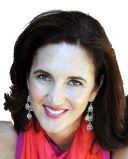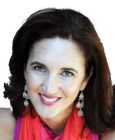Marriage
Caught Between Two Loves?
Here are three questions you can ask yourself to help get unstuck.
Posted September 1, 2017 Reviewed by Jessica Schrader
Consider these scenarios:
- Madeline has been married to Ron for seven years, and she’s having an affair with Quinton. The chemistry with Quinton is amazing, and he says that he’s ready for Madeline to end her marriage and build a life with him. Ron is a good man, but she feels a million miles away from him. She feels stuck and alone.
- Jorge has been seeing two guys for several months — Paul and Erik. Jorge adores Paul’s intellectual curiosity, and he feels close to Paul’s family and network of friends. However, Jorge finds Paul to be socially awkward and “low energy.” Jorge is drawn to Erik’s adventurous spirit and unpredictability. At the same time, Jorge worries about Erik’s drinking and history of relationship turmoil. Jorge worries that his inability to commit puts him at risk of losing them both.
These snapshots of people caught in love triangles are pulled from situations I have seen over the years with therapy clients, students, and friends. Although Maddie and Jorge's situations are clearly different — an affair versus dating — there is a common thread: Both are at a crossroads in their love lives, needing to make a difficult choice between two partners.

Being caught in a love triangle is painful. Feeling stuck and unsure how to proceed can create ruminative thoughts and emotional suffering. And the longer a person is stuck, the more opportunities they have to behave in ways that are deceitful or that otherwise increase their chances of losing both partners. Further, watching yourself behave deceitfully erodes your sense of your own integrity.
What should you do if you find yourself caught in a love triangle, unable to figure out your next move? As Albert Einstein said, “We can’t solve problems by using the same kind of thinking we used when we created them.” So here are three questions you can use to help get unstuck. These questions invite you into a new stance vis a vis the love triangle, and a shift in perspective can open up a new pathway toward insight and clarity.
1. "In which relationship do I feel most able to bring in my fullest and most wholehearted expression of myself?"
People caught in a love triangle often make side-by-side comparisons of their two love options. We can easily imagine Madeline and Jorge making pro-and-con lists, weighing the positive and negative qualities of each partner and making a decision from there. It’s not that this approach is bad or wrong, per se, but it's limited, as it leaves a huge variable out of the equation — you. It ignores the fact that YOU plus ME equals WE.
We are so much more than static and contained sets of personality traits and qualities that can be listed and compared. Intimate relationships are wrought in the dynamic space between partners. How you “show up” to the relationship changes how the other person “shows up” for the relationship. And vice versa. Intimate partners create dances of interaction made up of choreography that profoundly affects each of the dancers. Therefore, a far braver question is: “In which relationship do I feel most able to bring in my fullest and most wholehearted self?” This is a question that invites introspection, and the ability to introspect — to turn your attention inward in order to examine your thoughts, feelings, and beliefs — is essential for the creation of a healthy and happy intimate relationship.
2. "What keeps me from making a choice?"
Notice the subtle but meaningful difference in these two ways of asking the same question:
- “Why can’t I choose?”
- “What keeps me from making a choice?”
The first version (“Why can’t I choose?”) invites an explanation (“I can’t choose because…”), and explanations tend to involve one of two things — shame or blame.
- Shame: “I can’t choose because I’m afraid/broken/stupid/neurotic/selfish/lazy.” Great; you already felt stuck. Now you feel stuck and damaged.
- Blame: “Maybe I can’t choose because my stuckness proves that neither one of them is my soulmate”; “I can’t choose because of how they are acting”; “I can’t choose because the institution of marriage is flawed”; etc. Pointing the finger at some external factor keeps you passive and disempowered.
The second version of the question (“What keeps me from making a choice?”) is what people in the field of marriage and family therapy call a constraint question. Constraint questions invite reflection and curiosity, opening up the possibility for growth and insight. For those caught in a love triangle, asking yourself what keeps you from making a choice grants you direct access to what may be the very heart of the matter — the hidden payoff.
When we avoid making a choice, it may be because we are earning a hidden payoff, and by turning your attention inward, you can identify what your hidden payoff is. One possible hidden payoff is that the love triangle protects you from something that scares you. And when it comes to love, there’s plenty of stuff that can feel pretty darned scary — fear of heartbreak, fear of disappointment, fear of boredom. Those fears are legitimate, and at the same time, limiting. Here are two things to remember about fears:
- When we take the risk of confronting them, we reap the reward of experiencing our own resilience.
- Our fears tend to stem from messages and experiences that go way back, usually to childhood, and tools (like books and therapy) can help you move through old fears so you can feel empowered in love.
3. "If my best friend was in this spot and asked me for guidance, what would I say to them?"
People who know us well can talk with us in a way that is simultaneously compassionate and honest. They can love us, while inviting us to step into the best versions of ourselves. They can offer us their gentleness, while insisting upon our accountability. This third question gives you the opportunity to do for yourself what a good friend would do for you, and it may help shine light on what your next steps need to be.
Intimate relationships are messy. They are full of complexities and uncertainties that can bring out the best (and the worst) in us. If you are caught in a love triangle, you are wrestling with the very essences of attraction, love, commitment, and integrity. These three questions are pathways designed to help you access your internal world and find there the answers that you need.




